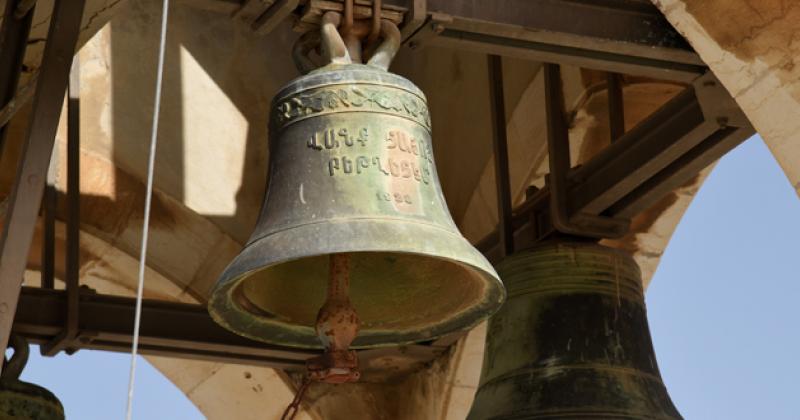“The devil hates everything beautiful and the bells are specifically used to draw attention to the divine worship of God.”
“The devil hates bells,” a deacon involved in the deliverance ministry recently told my husband and me. He is actually our daughter’s father-in-law, so it was just a casual conversation—or at least for us.
I had never heard of the bell-aversion, so during my next interview with an exorcist — this one from the mountain West — I asked about it. Father Theophilus (which means “loved of God” but it is not his real name because exorcists usually need to keep their identity secret) confirmed it. “Devils hate bells,” he said. “I use them in sessions all the time. I have a nicely-toned consecration bell that I use.”
The devil has screamed, “Knock it off!” at the sound of bells during exorcisms and tried to knock them out of his hand. The Rite of Exorcism uses prayers and holy water, but Father Theophilus also brings many tools into the fight against evil such as music, chants, sacred art, a team of prayer warriors, holy water and blessed bells to overwhelm the devil.
“Why bells?” I asked.
“Satan is always attacking us through our senses,” he said. “So the liturgy itself needs to be a holy assault on our senses: our sight, our touch, our smells and hearing. We have prayed as a Church with all these sensual things, because she learned through millennia that this is what repels the enemy.”
Father Theophilus uses his altar or sanctus handheld bells. “When these consecrated bells are used at Mass it is to say, ‘Look at him, the Word made Flesh!’” he said. “The bell humiliates the devil because it’s a non-rational object that is doing what they were made to do. They don’t want to adore God.”
Another reason the devil hates bells is because they hate everything beautiful and holy, according to Father Theophilus. “We are moved by beauty,” he said. “It stirs our souls—beautiful music, beautiful prayers, flowers, beautiful tones... the devil hates everything beautiful and the bells are specifically used to draw attention to the divine worship of God.”
It is customary to bless everything involved in the liturgy and to bless the church bells also, Father Theophilus said. “Blessings makes things holy — set apart for God. Everything in the liturgy needs to be set apart for God.”
Just as the sanctus bells give glory to God, so too does the ringing of church bells, whether the church has an old cast-iron bell or an electronic recording, Father Theophilus explained. Both can be blessed. “Traditionally, church bells called us to prayer,” he said. “If you have an Angelus app on your phone, a bell will ring to alert you.”
The Angelus is a Catholic prayer originating with an 11th-century monastic custom. Church bells called people at 6 a.m., 12 noon, and 6 p.m. to pray the Angelus—Latin for “angel.” People stopped what they were doing, knelt down and prayed. The Angelus commemorates the Incarnation when the Angel Gabriel declared to the Virgin Mary, and she responded: “Behold the handmaid of the Lord; be it done unto me according to Thy word.” And the Word was made Flesh and dwelt among us.
